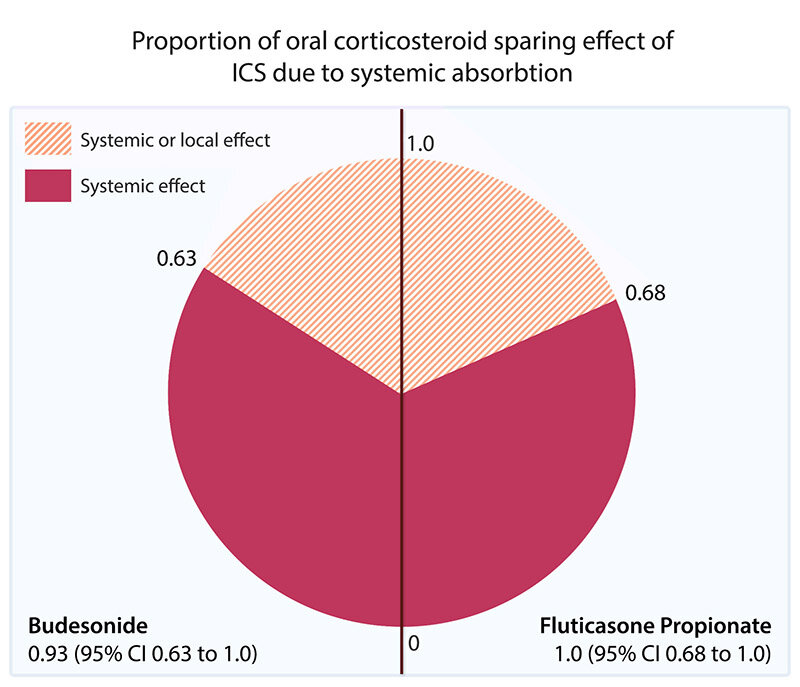Inhaled steroids may have similar effects, both positive and negative, to steroids taken by mouth for asthma
Asthma symptoms and flare-ups are caused by inflammation of the airways. To treat this, anti-inflammatory medication such as corticosteroids are often prescribed. Most people with asthma are treated with corticosteroids using an inhaler (inhaled corticosteroids). Usually, this would be at a dose which mostly has an effect within the airways. However, some patients with severe asthma need high doses of inhaled corticosteroid. In these cases, some of the medication will also be absorbed into the blood in addition to working within the airways.
The aim of this study was to find out how much of the effect of high dose inhaled corticosteroid is due to absorption into the bloodstream. We did this by comparing the results of two kinds of study which have been done on this topic.
We found more than half of the effect of inhaled corticosteroids appears to come from systemic absorption.
We found that it is likely that a large proportion of improvement in symptoms provided by high dose inhaled corticosteroids was due to their absorption into the bloodstream. This means that inhaled corticosteroids may have similar effects, both positive and negative, as corticosteroid tablets taken by mouth.
This is important information for doctors when deciding whether a patient should use high doses of inhaled corticosteroids or corticosteroid tablets. It gives us more insight into the possible effects and side-effects of medication we use on a regular basis to treat patients with asthma.
If you have Institutional Access, you can read the full paper in the European Respiratory Journal: http://bit.ly/ics-systemic-effect



